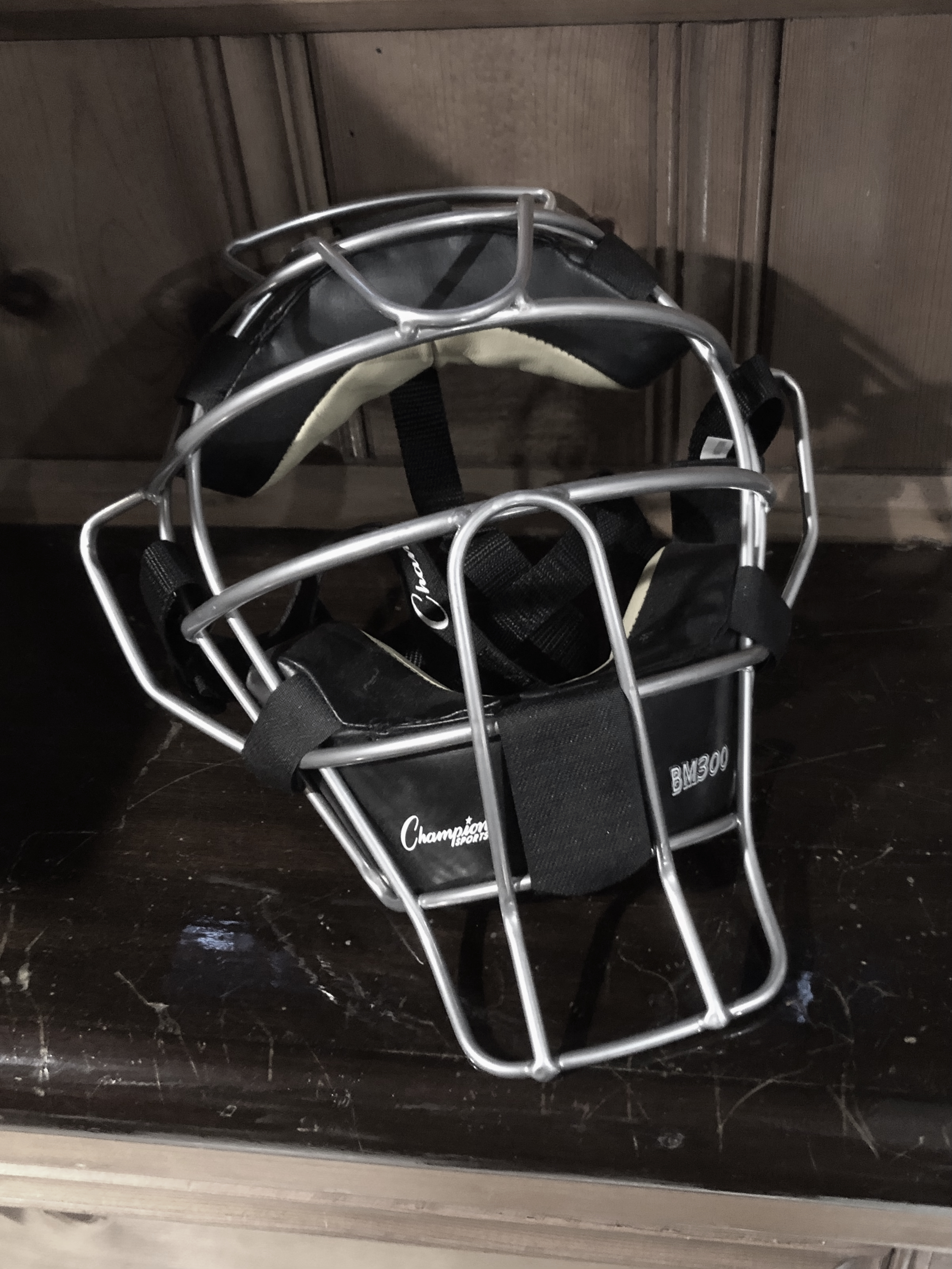blue

I’ve been toying with the idea of becoming certified (“patched,” in the vernacular) to umpire IHSA baseball games on and off for a few years.
When Danny started high school, that was the end of my coaching days. It would be professionals managing him from that point on. Umpiring seemed like a good way to stay connected to the sport I love. And, glutton for punishment that I may be, I like the energy of high school kids.
There were a couple of problems with the idea. One was that it would be simply out of the question for me to work any game involving Danny or any of the other kids I coached over the years. That would be surmountable; I’m sure I could tell the schedulers that I couldn’t work any OPRF games, or any of those for the local travel clubs for which the other kids play. There was a severe logistics problem, too, in that my job had me traveling Monday thru Thursday most weeks. So I wouldn’t be schedulable on those days, and how many hours of my precious weekends would I want to dedicate to this hobby?
Both of those hurdles are more or less cleared, now. Danny quit baseball for volleyball a couple of years ago, and the rest of the kids I know only have one season of club ball left before they head off to college. On the logistics front, I haven’t traveled in 15 months, and it doesn’t appear likely I’m getting back on a plane anytime soon, so the weekends aren’t the big deal they used to be. The stars realigned.
Further to that astral realignment, an old friend recently introduced me to someone who umpires a lot of games, not just at the high school level, but also for colleges and the low minors. At his invitation, I went to watch him and the other two umpires on his crew work a high school playoff game on Friday. I’ve seen a thousand ballgames, but I never really focused on the umpires until then. In addition to the balls and strikes, and the myriad other calls they make, there’s intricate choreography involved when there are fewer than four umps working the game, as is most often the case at these levels. Just knowing where to stand based on which bases are occupied or not involves a fairly complicated algorithm, something else to memorize beyond the daunting minutiae of the balk rules, some other thing to focus on beyond the action at hand. One of many such nuances. Watch them work sometime, you’ll see. There’s more happening than you think.
As the umpiring crew got into their gear, somewhat unglamorously standing at the trunks of their cars as they did, we were talking about the matchup at hand. On paper it wasn’t going to be close. One team is a perennial powerhouse, the other, a perennial doormat. As with so much in this world, an easy and accurate predictor of success is the relative wealth of the parties involved. Youth baseball (and soccer, and volleyball, and so much more) is dominated by the high-dollar travel clubs. You can line up conference standings right next to median home values in the districts, and find a strong correlation.
So while we all expected a slaughter, these veteran umpires agreed that things can go in unexpected directions in elimination games like this. Because for many of the kids on the losing team, as my new friend told me, this would be the last competitive game they’d ever play. Most of the seniors aren’t going to play in college next year. Zero of them are going to play professionally. And many of the underclassmen won’t even make their same high school team squad year. Every kid who steps in the batter’s box or who toes the rubber knows this at a deep level. Everything ends, and this thing they love and have dedicated themselves to since they were five years old might end today. With a thought like that rattling around in enough teenaged brains, these crusty old pros explained to me, the cumulative pressure of the moment can lead to unexpected outcomes. I caught my breath just thinking about it. It was almost unbearably sad. My kid walked away by his own choice, but most won’t.
The game was close for a while, but ultimately things ended according to expectations. There was no end-of-the-road choke for the favorite. However, the boy playing second base for the underdog made three errors in the fourth inning, turning the tide for good. Was that typical, or was he normally reliable? Was this his last game? Was he thinking about it? Did he sleep the night before? I’m sure he didn’t sleep the night after. I hope he gets a redemption shot next year.
I’m still not sure I want to go forward with this plan. It’d be a big commitment to learn all the deep, weird corners of the rulebook, and to study for the certification exam. I’m not going to half-ass this. Then I’d have to spend a fair amount of money on equipment, and of course the games themselves could eat many hours per week, if I let them. Beyond all that, I wonder if I have the right personality for it. Umpires radiate energy at a similar frequency and amplitude to cops. Have you ever seen an umpire walk onto a baseball field like he didn’t invent the game? That sort of alpha-dog cocksurety isn’t really how I roll. And of course there’d be all the abuse from coaches, players, and worst of all, parents. (Though tossing someone occasionally might be fun.)
But the drama. God, I miss the slow build and quick release of tension unique to this sport. And now that I’m aware of this new dimension, this memento mori writ small, I’m not sure I can resist the call.
